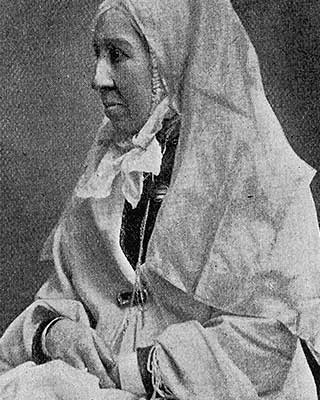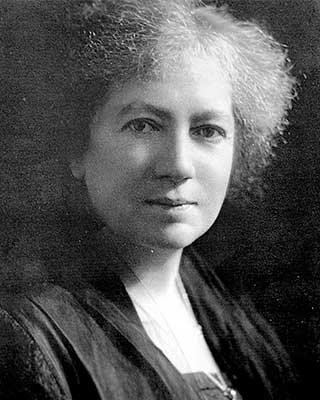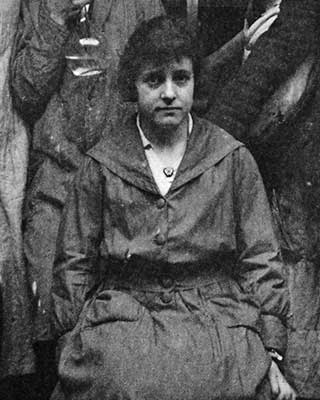Opportunities for women

Mary Burton
Twenty years before legislation forced Scottish universities to open their doors to women in 1889, Mary Burton (1819–1909), a pioneering campaigner for educational and social reform, led a successful campaign to persuade the Directors of the Watt Institution to admit women students – a truly radical step at the time.
She was one of the first women elected to serve on Parochial and School Boards and a tireless advocate for women's suffrage. Mary believed that boys as well as girls should be taught to sew, knit and cook for themselves. She went on to become the first woman on the School's Board of Directors and later a Life Governor of Heriot-Watt College. She also took an active interest in the cultural life of the college as Honorary President of the Watt Literary Association.
Inspiring careers
Mary Burton inspired many women of her time and beyond to break into and excel in roles previously only held by men. Among them, pioneering geologist Dame Marie Ogilvie Gordon (1864–1939) and Christina Miller (1899–2001).

Marie Ogilvie Gordon
Originally from Aberdeen, Marie Ogilvie Gordon began her scientific career at Heriot-Watt College in 1887 where she studied towards a degree by distance learning. In 1890, she gained a BSc from the University of London specialising in geology, botany and zoology. Three years later she became the first woman to receive a Doctor of Science from University College London with her thesis on the geology of the southern Tyrol. In the 1900s she was the first female to gain a PhD from Munich University. In 1919 she was elected one of the first women Fellows of the Geological Society.
Following the publication of her seminal study of the geology of the Tyrol Dolomites in 1927, she went on to win the Society's Lyell medal for her pioneering research on plate tectonics in 1932.

Christina Miller
Dr Christina (Chrissie) Miller overcame society's perceptions of deafness to pursue a distinguished career as a research chemist and an inspirational teacher and mentor to generations of students. She worked as a laboratory demonstrator while a student at Heriot-Watt College in 1920. Dr Miller was the first women chemist to become a Fellow of the Royal Society of Edinburgh.
Spirit of Christina Miller lives on
Today, the spirit of Christina Miller lives on at Heriot-Watt with women continuing to play an important role in teaching, learning and research.
Male/female equality
Here is a quick snapshot of the nature of major research led by female academics at Heriot-Watt:
- Tackling global issues in housing and poverty. Heriot-Watt is one of the UK's top social and urban policy centres creating solutions that are making a difference in the world
- Innovating possibilities for new product development in conductive textiles leading to worldwide solutions and practical applications in the medical, defence and sportswear industries
- Leading research with global industry partners across the entire carbon capture and storage chain. Providing innovative solutions to reduce global carbon dioxide emissions and meet global energy demands.
Commitment to initiatives supporting gender equality more broadly, such as the Athena SWAN Charter, are embraced across all global campuses. They embrace the University's original philosophy of providing education and support for all who want to learn, advance and make a contribution to solving global challenges.